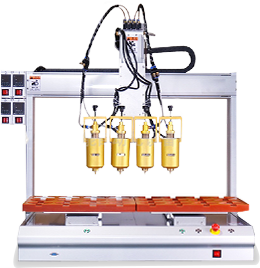

Metal washers are essential basic fasteners in mechanical assembly. They are made of high-quality metal materials such as stainless steel, carbon steel, and copper alloy, and are formed through stamping, rolling, and other processes. Their annular sheet structure design can effectively disperse pressure, prevent loosening, adjust clearance, and protect the surface of the connected parts from damage during the tightening process of bolts and nuts. They are widely used in mechanical equipment, automobile manufacturing, construction engineering, and other fields to provide reliable protection for component connection.
Produced in accordance with international standards such as GB, ISO, and ANSI, it provides multiple nominal sizes from M2 to M100, with a thickness range of 0.5-10mm, and supports customized special specifications and non-standard sizes. Some common specifications are as follows:
Type | Material | Nominal size (mm) | Thickness (mm) | Main application scenarios |
Flat washer | 304 stainless steel | M3 - M36 | 0.5 - 3 | General tightening pressure dispersion |
Spring washer | 65Mn spring steel | M4 - M48 | 0.8 - 4 | Vibration equipment loosening prevention |
Copper washer | H62 copper alloy | M6 - M52 | 1 - 5 | Pipeline sealing |
III. Product Details
1. Material Type
Stainless steel: 304 stainless steel has good comprehensive corrosion resistance and is suitable for general industrial environments; 316L stainless steel adds molybdenum and performs well in strong corrosion scenarios such as seawater and chemical industry.
Carbon steel: 45# carbon steel has high strength after quenching and tempering treatment, and surface galvanizing (hot-dip galvanizing/electrogalvanizing) can improve rust resistance, and is commonly used in construction and machinery manufacturing.
Copper alloy: H62 brass has good electrical and thermal conductivity and corrosion resistance, and is suitable for sealing and connecting electrical equipment and pipeline systems.
2. Manufacturing process
Stamping: Using precision molds and high-speed punching machines, large-scale and efficient production of washers is achieved, and the dimensional accuracy is controlled within ±0.1mm.
Surface treatment: Carbon steel washers are galvanized and Dacromet-treated; stainless steel washers are passivated and electrolytically polished; copper alloy washers can be tinned and silver-plated to improve protection performance and appearance quality.
Special processing: The sealing gasket is embedded in the rubber layer through molding, and the anti-loosening gasket is heat-treated to enhance elasticity and ensure functional reliability.
3. Quality inspection
Dimension inspection: Use calipers, micrometers, projectors and other equipment to fully inspect the inner diameter, outer diameter and thickness of the gasket to ensure that it meets the standard tolerance requirements.
Performance inspection: Evaluate material strength through hardness test and tensile test; verify corrosion resistance through salt spray test (≥72 hours); and ensure anti-loosening effect through elasticity test (spring gasket).
Appearance inspection: Use visual inspection equipment to check whether there are defects such as cracks, burrs, scratches, etc. on the surface of the gasket to ensure product quality.
 Headquarters tel.
Headquarters tel. E-mail.
E-mail.